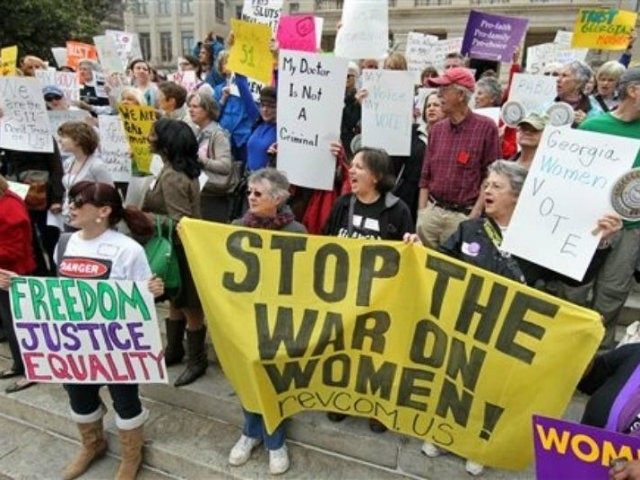Three radical feminist lawyers from the UN visited the United States for ten days, ending December 11. Sent as investigators of the UN Working Group on discrimination against women, their report shows they are not very happy.
Eleonora Zielinska, Frances Raday, and Alda Facio met with groups in Washington DC, Alabama, Oregon, and Texas. Though the women are “experts” on international law, their report evinces basic misunderstandings about state obligations under UN treaties, along with misunderstanding not only about U.S. law but the U.S. government.
The group is especially disappointed that the U.S. has not ratified the UN Convention on the Elimination of All Forms of Discrimination Against Women (CEDAW), the so-called Women’s Rights Treaty that has been ratified by almost every other nation. They complain that “the US government committed to ratify the [Convention] but this commitment has not yet been implemented.” The women must surely know that the U.S. Senate, even under Democratic leadership, has shown no interest in ratifying the CEDAW treaty.
The women also complain that the U.S. has not ratified the deadest of political dinosaurs known as the Equal Rights Amendment. They call it a “myth” that women already have rights and protections under U.S. law and point out American women do not have “universal paid maternity leave,” “accessible reproductive health care,” and “equal opportunity for political election.”
The foreign feminists also complained about the “political rhetoric of some of the candidates for the Presidency” that “has included unprecedented hostile stereotyping of women…”
They say the U.S. ranks 72nd in the world for women holding political office and lay the blame on how hard it is for women to raise political money. They charge that the U.S. Supreme Court lifting fundraising restrictions will make it even harder for women to run and call for “temporary special measures” to “ensure more adequate representation of women in politics. Such temporary special measures adopted in other countries include quotas for women in office, an idea that would have very little traction in the U.S.
They praise the pro-abortion group Emily’s List for encouraging female candidates but do not mention similar work done by the pro-life group Susan B. Anthony List.
They point out that women “vote in higher percentages than men” but, in an amazing political carom shot, say even this is in danger because voter identification laws can have the affect of harming women who are newly married, along with the “reduction of voting centers” that can limit the ability of the voting poor who are overrepresented by women.
Their report reiterates the widely discredited wage gap.
They repeated several times that “international human rights law requires” this, that, and the other. What they do not point out is that international human rights law is based on hard law treaties that governments have to agree to in order to be legally bound. Almost alone in the world, the U.S. has never ratified any of the treaties that specifically enumerate economic rights. These types of treaties were initiated by the Soviet Union when the UN was newly formed as a reaction to the political rights championed by the West, including rights to religious freedom, political self-determination, association, and all the rest that are familiar to Americans.
The group shows special enmity for pro-life efforts that have imposed restrictions on abortion clinics and required things like waiting periods and sonograms for women seeking an abortion. Even though the U.S. has among the most liberal abortions law in the entire world—abortion on demand through all 9 months of pregnancy—even small restrictions were enough to raise the ire of these pro-abortion UN representatives.
They raised the specter of the “War on Women” because, they say, American women have limited access to contraceptives, which they erroneously say is an international human right. However, they fail to note that, according to the United Nations itself, the U.S. has among the highest incidence of contraceptive use in the world.
They close by calling for the U.S. to legalize prostitution which they say is also a human right.
Their report has no force in law but will certainly be used against the United States by UN bodies in the future, particularly if a conservative occupies the White House in the coming year.
Follow Austin Ruse on Twitter @austinruse.

COMMENTS
Please let us know if you're having issues with commenting.